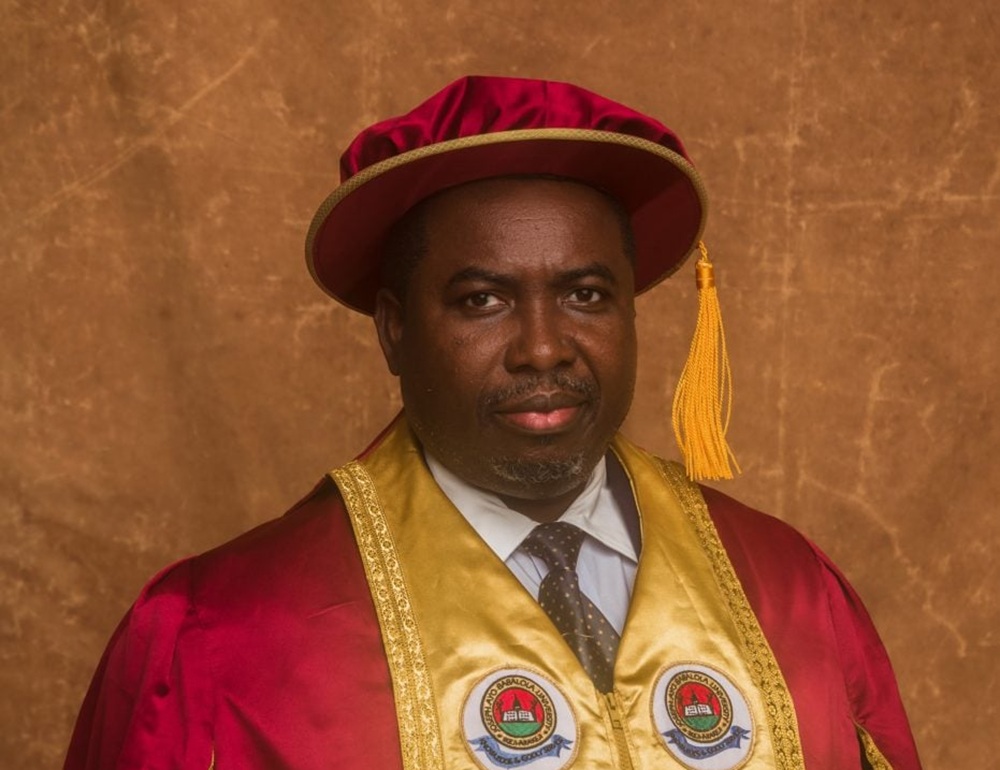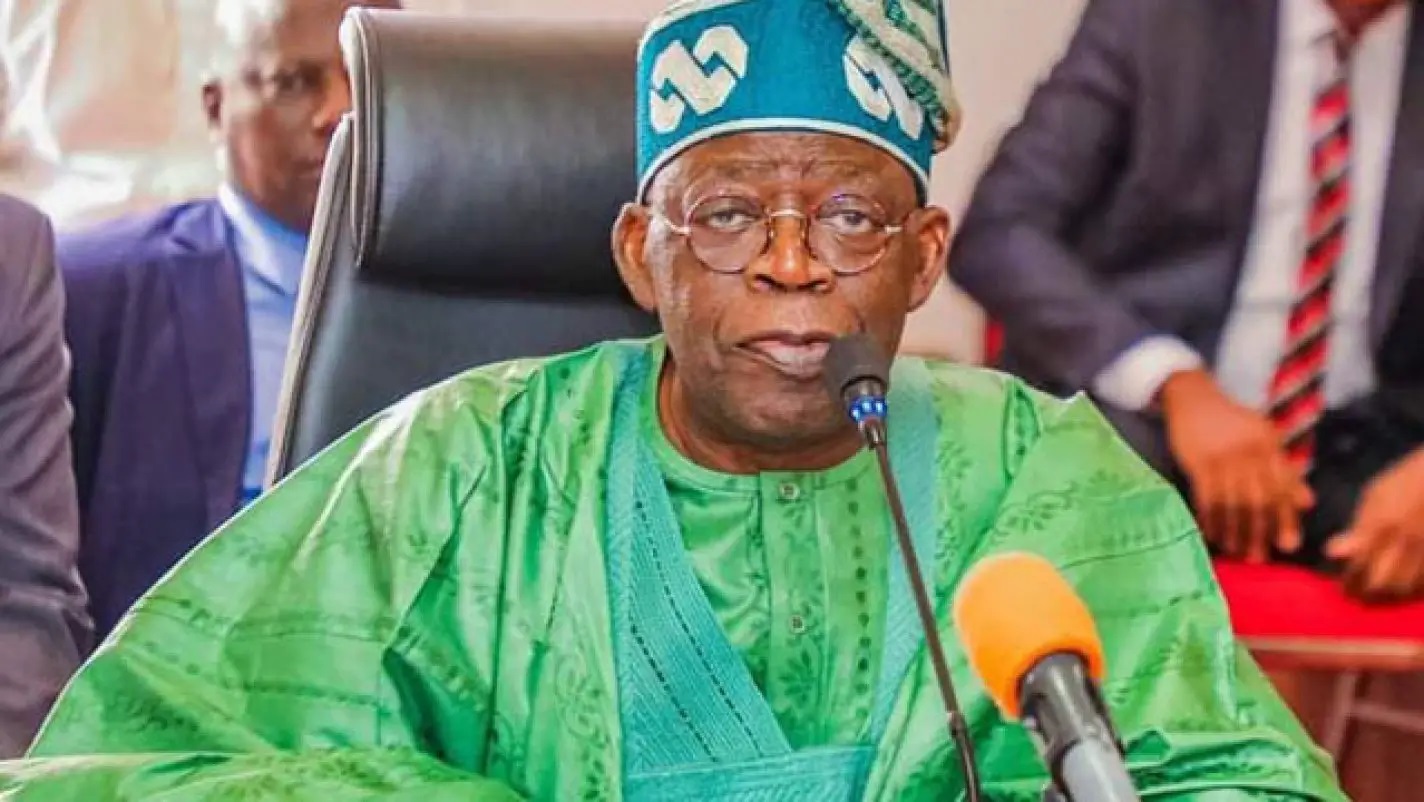Tinubu's Bold Move: Senate Confirms Prof Amupitan as New INEC Boss

Last week, on October 7, an announcement was made regarding the exit of Professor Mahmoud Yakubu, who served as the Chairman of the Independent National Electoral Commission (INEC) from 2015 to 2025. He was temporarily replaced in an acting capacity by Mrs. May Agbamuche-Mbu, Chairperson of the Legal Services, Clearance, and Complaints Committee (LSC &CC). Mrs. Agbamuche-Mbu's tenure as acting chairman is expected to be brief, reminiscent of Ms. Amina Bala Zakari, who held the acting chair position for about five months from June to November 2015. Just two days later, on October 9, the National Council of State unanimously approved the nomination of Professor Joash Ojo Amupitan as the new INEC chairman. His name had been in circulation for weeks as President Tinubu’s preferred choice, and his nomination is now poised for confirmation by the Senate, which is largely considered a formality.
Professor Amupitan steps into arguably the most challenging role in Nigeria, that of the chief electoral umpire, a position historically met with vilification and abuse due to Nigeria’s toxic political environment, desperate politicians, and weak institutions. Electoral matters frequently culminate in tribunals and courts, dragging the judiciary into an ecosystem of distrust. Despite consistent calls for electoral reforms by civil society, core defects in Nigeria’s political culture persist, making the job a thankless one.
Professor Amupitan, 58, received his first wave of scrutiny immediately upon his name's announcement. President Tinubu reportedly described him as “a man of integrity and a non-partisan professional,” noting he is the first person from Kogi State, North Central Nigeria, to be nominated for the position. Amupitan’s credentials are indeed strong: a Professor of Law, a Senior Advocate of Nigeria (SAN), current Deputy Vice Chancellor at the University of Jos, Pro-Chancellor and Chairman of Council at Ayo Babalola University, author of highly referenced law books on Company Law, Law of Evidence, Corporate Governance, and Trust, and a law teacher for approximately three decades.
Despite this impressive profile, critics from various quarters—including the opposition, lawyers, ethnic gladiators, and civil society activists—have actively sought to discredit him. This behavior, seen as typical Nigerian cynicism, often bypasses a genuine request for information and accountability, as many allegations fail under scrutiny. A curious initial target of criticism focused on Amupitan’s school certificates. One individual, claiming a Ph.D. and a fair understanding of the academic system, alleged discrepancies: unknown primary and secondary schools, attending Kwara State Polytechnic at age 15, completing a law degree in three years instead of five, and becoming a Head of Department in 2006 without a Ph.D., and a Dean in 2008 a year after his Ph.D.
These allegations were swiftly rebutted. Kenway Davidson, FCA, Amupitan’s schoolmate and childhood friend, confirmed their attendance at LEA Primary School in Ayetoro-Gbede, Kogi State, and Amupitan's subsequent enrollment at St. Barnabas Secondary School Kabba. He then gained admission to the School of Basic Studies at Kwara State College of Technology for his A Levels. Davidson clarified that law studies in Nigeria, especially with an A-level qualification, traditionally allowed for a three-year degree program instead of four (or five). Furthermore, it was explained that a Ph.D. or even professorship is not a universal prerequisite for appointment as Head of a Department or Dean of a Faculty, particularly in law where teachers are assessed on both scholarship and legal practice under the A&P process.
Another significant attack came from a group of over 1,000 lawyers, operating under the Association of Legislative Drafting and Advocacy Practitioners (ALDRAP). They petitioned the Senate Committee on Electoral Matters to reject Amupitan’s nomination, citing a conflict of interest due to his alleged role as lead counsel for the All Progressives Congress (APC) during the 2023 Presidential Election Petition at the Supreme Court. However, a simple check, corroborated by non-lawyers and Babatunde Ogala, SAN, coordinator of the APC legal team, established that Amupitan was never part of the APC legal team. ALDRAP, which had sent its petition to anti-corruption and law enforcement agencies, now owes Amupitan a public apology for exposing lawyers to ridicule and seeking to incite the public. It is thus established that Amupitan has no conflict of interest, unlike the “Lauretta Onochie situation” ALDRAP claimed.
Further objections emerged from the Human Rights Writers Association of Nigeria (HURIWA), which questioned President Tinubu’s motives, alleging that the appointment was a move to consolidate control over the electoral process, prioritizing loyalty over competence. HURIWA provided no evidence for this, but its argument echoes an underlying ethnic viewpoint: that Amupitan, as a Yoruba from Kogi State, would naturally protect the interests of his kinsman, who is seeking a second term as President. Professor Farooq Kperogi also commented on the “New INEC Boss and Tinubu’s Visibilization of Northern Yorubas.” Amupitan is not only the first person from Kogi State to chair the electoral body but also the first Yoruba man. While some critics play the ethnic card, it is noteworthy that out of 14 Chairpersons of Nigeria’s electoral body since 1959, the South South produced seven, the South East three, the North West two, the North East one, and the North Central and South West none.
Amidst the criticisms, Amupitan’s nomination has also garnered praise from the ruling APC, the founder of the New Nigeria People’s Party (NNPP) – Dr. Boniface Aneibonam, Secretary General of NNPP Comrade Sunday Oginni, the Lagos State Chapter of the APC, the Ade Olamife Campaign Vanguard, Okun Youths, and the Yoruba Council of Elders. Nevertheless, in less than a week, his nomination has already divided the public, foreshadowing the challenges ahead. His
You may also like...
Ex-Premier League Referee Faces Prison After Guilty Plea in Child Image Case

Former Premier League referee David Coote has pleaded guilty to the serious charge of making an indecent image of a chil...
Osimhen's Hat-Trick Fuels Super Eagles' World Cup Hopes in Thrilling Benin Clash

Nigeria's Super Eagles secured a playoff spot for the 2026 FIFA World Cup with a dominant 4-0 victory over Benin, highli...
Mel Gibson Casts New Jesus for Highly Anticipated ‘Passion of the Christ’ Sequel

"The Resurrection of the Christ," Mel Gibson's highly anticipated sequel to "The Passion of the Christ," has begun filmi...
Legendary ‘Star Wars’ & ‘Blade Runner’ Poster Artist Drew Struzan Passes Away at 78

Renowned artist Drew Struzan, known for his iconic film posters for movies like “Star Wars” and “Blade Runner,” has pass...
Cosmic Sounds: Brian Eno & Beatie Wolfe Launch New Album Into Space

Brian Eno and Beatie Wolfe have unveiled a trio of ambient albums born from a strikingly normal creative process, now cu...
King Kylie Storms Music Scene: Kylie Jenner Drops Debut Track ‘Fourth Strike’

Kylie Jenner has released her debut song, "Fourth Strike," collaborating with pop duo Terror Jr and reviving her King Ky...
Secret Affair Unveiled: Katy Perry Confirms Justin Trudeau Romance at London Gig

Katy Perry has seemingly confirmed her new relationship with former Canadian Prime Minister Justin Trudeau during a Lond...
Jennifer Hudson Electrifies in Neon, Sets New Style Trend!

Jennifer Hudson made a dazzling entrance in a neon yellow gown and hot pink heels, electrifying the crowd in the spirit ...




